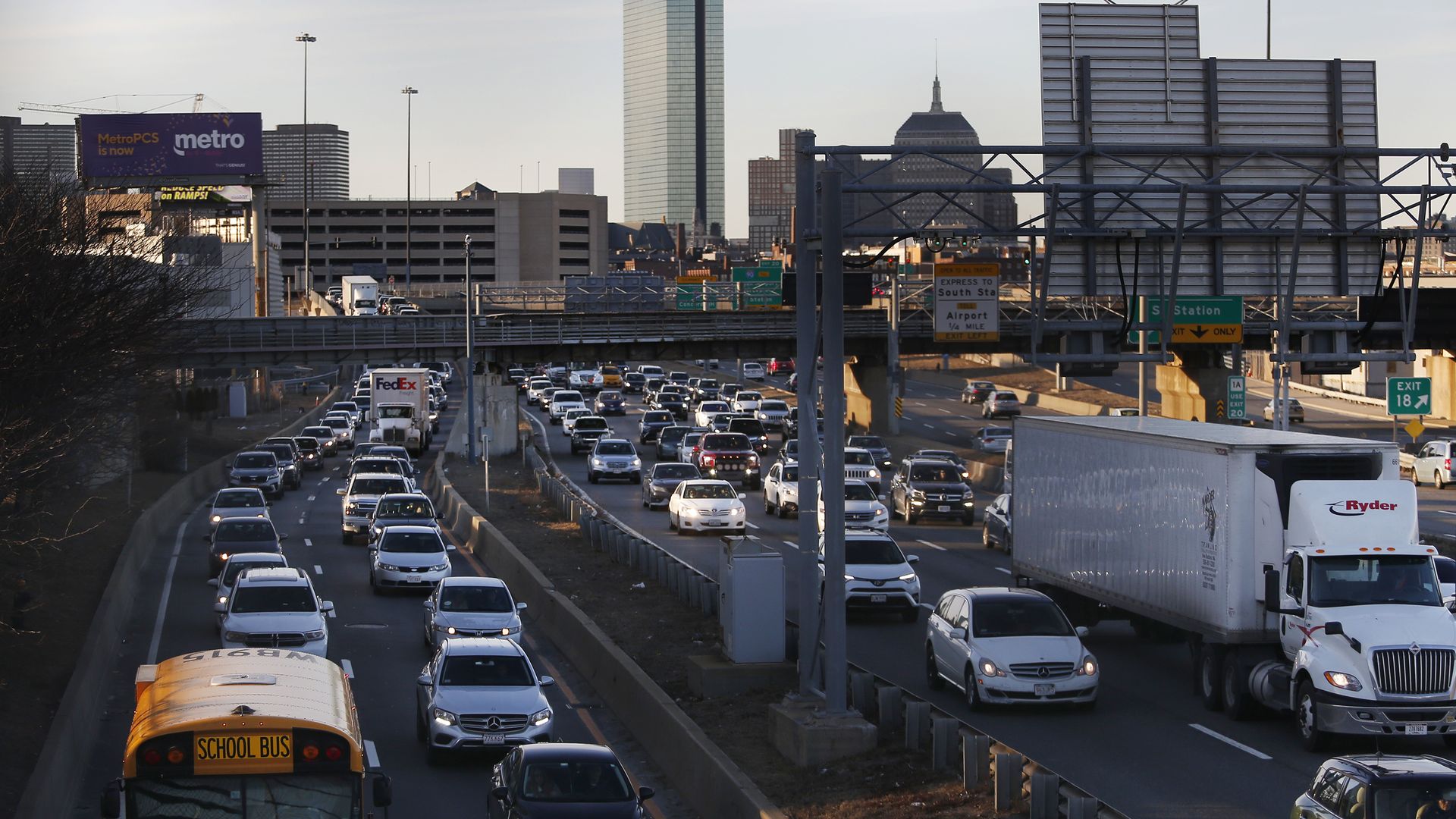Big automakers go around Trump with California emissions deal
Add Axios as your preferred source to
see more of our stories on Google.

Gridlock in Boston. Photo: Jessica Rinaldi/The Boston Globe via Getty Images
Four huge automakers — Ford, Honda, VW and BMW — said Thursday that they've struck a voluntary deal with California on vehicle emissions rules that they're hoping will form the basis for a nationwide agreement with the Trump administration.
Why it matters: It signals a break between the companies and the White House as the Trump administration pushes ahead with plans to weaken mileage and emissions standards.
- The Trump administration is planning to freeze annual emissions standards increases in 2020, rather than letting them grow stricter as envisioned under Obama-era rules.
- The EPA, as part of that plan, would seek to strip California's special permission under the Clean Air Act to set its own emissions standards that a number of other states follow.
Yes, but: While major automakers had backed efforts to weaken Obama-era rules they call too aggressive, they have also bristled at Trump's push to freeze them outright.
The big picture: According to Reuters, under the deal with California, "the stringency of the requirements would increase at a nationwide average annual rate of 3.7% annually starting in the 2022 model year through 2026, and 1% of that annual improvement could be covered by credits awarded for building electrified vehicles."
What they're saying: "These terms will provide our companies much-needed regulatory certainty by allowing us to meet both federal and state requirements with a single national fleet, avoiding a patchwork of regulations while continuing to ensure meaningful greenhouse gas emissions reductions," the four automakers said in a joint statement.
- They added that the agreement is "available to all automakers."
- Mary Nichols, California's top air quality official, told the Washington Post that she sees the deal as an "olive branch" to the Trump administration.
Go deeper: How California can meet its aggressive clean energy law
